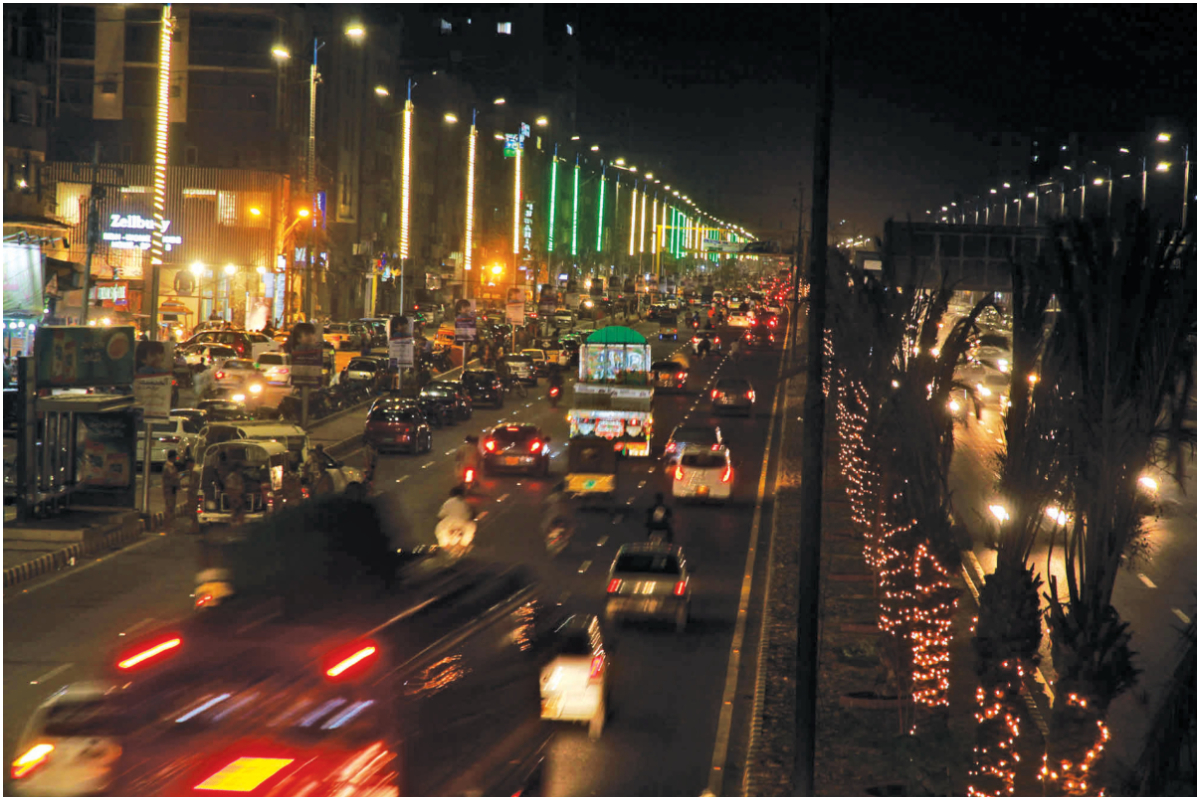
Photos: Athar khan & Mohsin Raza/Bol News
Restaurant workers worried about their jobs
Karachi: The business community have expressed reluctance to accept the Federal Cabinet’s decision regarding conservation of energy through early closure of businesses.
According to the energy conservation plan, the restaurants, hotels and markets would close by 8:30 pm, and wedding halls by 10:00 pm.
Muhammad Nazar, a carpet and bed-sheets shop owner at the Light House, said that businesses solely depend on the customers’ presence in the market.
“The citizens visit markets in the evening hours after the closure of their offices. There is no point in opening the markets early, if there are no buyers,” he added.
The average market timing in the country is in contrast with the rest of the world, where the markets start their business early in the morning and close in the evening, which helps lower the energy consumption.
Globally, the average business day runs from 8:30 am to 6:00 pm. In the US and most of Western Europe, the average working timings are 9:00 am to 5:00 pm from Monday to Friday, according to a report by everhour.com. In Japan, the average business day runs from 8:30 am to 7:00 pm from Monday to Friday, it added.
However, in Pakistan, especially in Karachi, the traders start their day at around 11:00 am only to stay up till late night. Gulshan Javed Khan, general secretary of the Anjuman Falah Tajiran Second Hand Clothing Market was of the view that the decision of early closure of markets will not bear any fruits without the cooperation of the business community and the society, as a whole.

“Instead of issuing a royal decree, the government needs to raise awareness regarding conserving energy. I suggest the government implement the decision for a month on a trial basis and gauge its effectiveness. If the trial’s outcome is of any benefit, then we, the business community, will happily contribute to the cause,” he said. For him, the government can also conserve energy by capping the electricity consumption for commercial purposes.
“After consulting the commercial consumers, the power utility can be empowered to limit the consumption of the electricity/month for the consumers,” he added. He urged the government to also change the timings of offices so that the people could visit the markets early. Forwarding clocks by an hour or so is another measure, which could likely help the country in taking advantage of sunlight. The move is in practice worldwide, as in every fall, the clocks change by an hour and remain the same until the spring.
More than 140 countries had implemented it at some point. Canada and all European Union countries and many European non-members continue to make the switch, according to a report by Statista, a market and consumer data platform.
Argentina, Paraguay, Cuba, Haiti, the Levant, New Zealand and parts of Australia are also practicing the same idea, it added. In the past, several federal governments have practiced such measures, as clocks across Pakistan were moved an hour ahead from April 15, 2009 with a view to avail an extra hour of daylight.
The then Information Minister Qamar Zaman Kaira said that the move will help conserve around 250 to 300MW. The clocks were moved back by an hour on October 31, 2009. According to estimates provided by the Ministry of Water and Power, around 250MW were conserved daily, owing to the decision to advance the Pakistan Standard Time (PST) by an hour.
Meanwhile, Farid Qureshi, general secretary of the All Karachi Retail Grocers Association, endorses the decision and said that the closure of the markets by around 6:00 pm is a worldwide practice.
“The Jodia Bazaar, a major market for the wholesalers, is usually closed down at around 6:00 pm. I personally support the government’s decision. However, there is a need to take all the business community in confidence,” he added.
“I believe it will take time for the nation to adjust to the new regulations, and as such, the government needs to give some cushion to the business community.”
Mufti Muhammad Zubair, Islamic Scholar and vice president of Jamia Suffah Karachi said that Islam endorses and emphasises on commencing business activities early in the morning.
“The government’ decision is a good one keeping in mind the religious perspective. However, due to prevailing economic conditions, there is a need to raise awareness among the people rather than abruptly closing down businesses,” he added.
Waseem Khanzada, a valet driver at Dua Restaurant, is concerned about his livelihood in case the government forcefully shuts down the restaurants at the stated time.
“The restaurants’ business usually hits peak during late hours, when people are free from their offices and want to enjoy themselves. If the government enforces its decision, it will hit the lower segment, such as chefs, valet drivers and others,” he added.
“Our income depends on the business of the restaurant at the weekends, where the customers come with their friends and families even after midnight,” Khanzada remarked. Rana Raees, president of Karachi Wedding Halls Association, said that around 250 labourers depend on the business of a single marquee. The early closure of these halls will hit these individuals who are already suffering from the deteriorating economic situation of the country.
He was of the view that the decision will further increase pressure on the already burdened common man. The halls’ owners faced unprecedented challenges in the last two years due to the Covid-19 pandemic followed by the power and gas crisis in the country.
“We have suggested wrapping up around 11:00 pm and completely closing down around 12:00 am. Various allied businesses also depend on these marriage halls, which will be negatively affected due to this decision,” Raees remarked.
The Pakistan Tehreek-e-Insaf (PTI)-led Punjab and Khyber-Pakhtunkhwa governments had already refused to comply with the federal government’s conservation plan. Punjab Senior Minister Aslam Iqbal had said that the provincial government was not taken into confidence regarding the decision. The Punjab government will reconsider the decision made by the centre and after due consultation, it will take necessary action, he added.
KP Information Adviser Barrister Muhammad Ali Saif said that the federal government did not consult the provincial government on the energy conservation plan. The provincial government had not taken any decision regarding the implementation of the policy yet, he added.
Catch all the Urban Insight News, Breaking News Event and Latest News Updates on The BOL News
Download The BOL News App to get the Daily News Update & Live News.












 Read the complete story text.
Read the complete story text. Listen to audio of the story.
Listen to audio of the story.